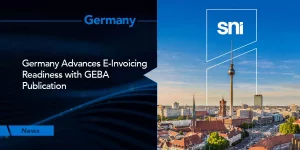Serbia is paving the way to become one of the countries in Europe to follow the electronic tax requirements. The Ministry of Finance has announced the adoption of electronic invoicing in accordance with the Law on Electronic Invoicing. The first phase of mandatory electronic invoicing will be applied to the public sector, then it is planned to be followed by the B2B sector. The implementation timeline is foreseen as follows:
- G2G e-invoicing:1 May 2022
- B2G e-invoicing:1 May 2022
- G2B e-invoicing: July 2022
- B2B e-invoicing: January 2023
The Serbian Government will use a national platform called Sistem eFaktura, usually shortened to SEF, in order to manage sending, receiving, processing, and storing electronic invoices. Companies that are suppliers to public entities will be obliged to send their invoices electronically to the eFaktura portal. In addition, an auxiliary system Sistem za Upravljanje Fakturama (SUF) has been introduced to help taxpayers with the processing and storage of invoices. Taxpayers will submit their invoices directly through the e-invoicing portal or directly from their ERP systems, such as SAP, using a dedicated API provided by the tax authorities. All companies, including VAT representatives of foreign companies, and public entities, that are subject to VAT will be under the scope of compliance. While VAT-exempt entities are not legally obliged to use the electronic invoicing system, they may still voluntarily use SEF. The format of the electronic invoices will be XML in line with the UBL 2.1 standard. Electronic invoices will have to be signed electronically before submitting them to the tax authorities and they will be archived for a period of 10 years.





